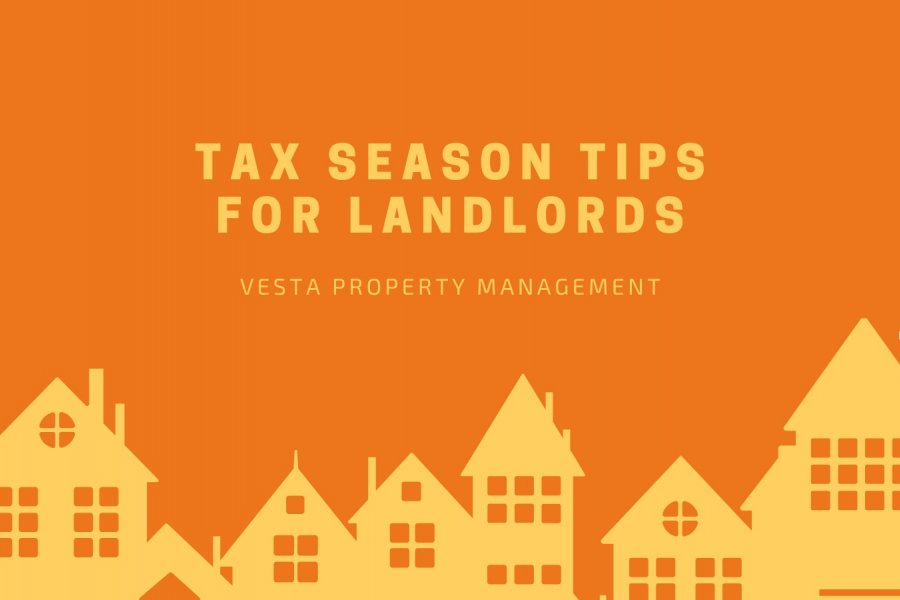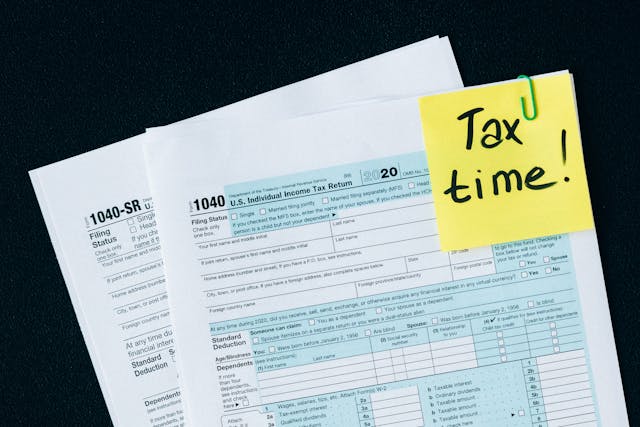
- Stay Organized Year-Round: Keeping detailed records throughout the year makes tax season easier and helps you maximize deductions.
- Track All Income and Expenses: Include rent, fees, repairs, travel costs, and other related expenses to get a clear financial picture.
- Use Depreciation Wisely: Deduct your property’s cost over time to reduce taxable income, even when repairs are minimal.
At Vesta Property Management, we understand that tax season can be stressful for property owners, especially if you are managing multiple rental units or trying to balance your properties with other investments or a full-time job.
Filing taxes as a rental property owner involves more than simply entering numbers from a 1099 form. You need to know which expenses you can deduct, how to track income accurately, and how to handle depreciation, along with other important details.
The good news is that with proper preparation and consistent financial management throughout the year, tax season does not have to be overwhelming. In fact, with the right strategy, it can even help you save money. Below, we’ll discuss the top tips for landlords during tax season!
Learn How We Can Help You Maximize Your Home’s Potential.
Understand Your Taxable Rental Income
First and foremost, landlords must report all rental income they receive throughout the year. This includes monthly rent payments, but it doesn’t stop there. Income can also include security deposit amounts that you keep for damage repair, lease cancellation fees paid by residents, and any service fees charged on top of rent.
Being clear on what qualifies as income ensures that you avoid issues with the IRS and gives you a better picture of your property’s financial performance. Always keep meticulous records of every transaction throughout the year, whether it’s cash, checks, or digital payments.

Take Advantage of Rental Property Deductions
As a landlord, you can claim a wide range of tax deductions that reduce your taxable income and reflect the cost of managing a rental property.
Mortgage interest is one of the largest deductions, often leading to significant savings. You can also deduct property taxes, maintenance and repairs, utilities (if you pay them), advertising for new residents, travel expenses for business purposes, and even accounting software subscription fees.
Keep in mind that major improvements, like a new roof or kitchen renovation, are not immediately deductible. These costs must be depreciated over time.
Discover the Benefits of Hiring Vesta Property Management!
Depreciate Your Property Properly
Depreciation is one of the most powerful tools landlords have when it comes to reducing their taxable income. The IRS allows landlords to depreciate the cost of their rental property (excluding the value of the land) over 27.5 years. This means each year you can deduct a portion of the property’s cost, even if it hasn’t required much maintenance.
To calculate depreciation, you’ll need to determine the cost basis of your rental property, which includes the purchase price minus the value of the land, plus any significant improvements. Once this number is established, divide it by 27.5 years to find your annual depreciation deduction.
Track Expenses Year-Round
One of the biggest mistakes landlords make is waiting until tax season to gather receipts and invoices. This reactive approach often leads to missed deductions, misfiled documents, and unnecessary stress.

Instead, create a system for tracking income and expenses throughout the year. This could be as simple as using a spreadsheet or as sophisticated as investing in property management software that automates your financial reporting. The key is to be consistent and accurate.
Make sure you categorize every expense correctly and keep documentation to back it up; receipts, invoices, mileage logs, and utility bills are all necessary in case of an audit.
Learn How We Help Real Estate Investors Succeed!
Understand Passive Activity Loss Rules
Rental real estate is generally considered a passive activity, so your ability to deduct losses may be limited based on your income and involvement. For example, landlords with a modified adjusted gross income (MAGI) over certain limits may not be able to deduct passive losses against other income.
There are exceptions. If you actively manage the property by making decisions, approving repairs, or selecting residents, you may be able to deduct up to $25,000 of rental losses, depending on your MAGI.
You could also qualify as a real estate professional, allowing rental activities to be treated as non-passive and potentially deducting all losses. This requires more than 750 hours a year in real estate activities, and that makes up over half of your total working hours.
It is important to understand how these rules apply to your situation, especially if you own multiple properties or expect a rental loss.
Prepare for 1099 Filing
Landlords who pay $600 or more during the year to any service provider, such as plumbers, electricians, or contractors, are generally required to issue IRS Form 1099-NEC. This form reports how much you paid each vendor for services.

To avoid delays during tax time, request Form W-9 from your vendors before work begins. This gives you their legal name, address, and taxpayer identification number, which you’ll need to complete the 1099 form.
Failing to issue required 1099s can result in penalties, so it’s best to keep track of vendor payments and plan to stay compliant.
Work With a Professional Property Management Company
Managing rental property can get complicated, especially at tax time. From tracking expenses and income to handling depreciation, there is a lot to manage.
A professional property management company can help. Beyond finding residents and handling maintenance, they take care of the financial side of your investment. Most provide monthly and annual statements that are tax-ready, saving you time and stress.
With the right systems and experience, a good property manager can reduce errors, help identify deductions, and make tax season much easier.
Discover Our Property Management Services!
Bottom Line
With a clear understanding of what to report, what to deduct, and how to organize your records, you can take full advantage of the tax benefits available to you. Follow these strategies to help you stay on top of your finances.
At Vesta Property Management, we provide detailed monthly and annual financial reports that make tax filing simple. Our reports are organized, accurate, and designed to help you track income, expenses, and deductions with ease.